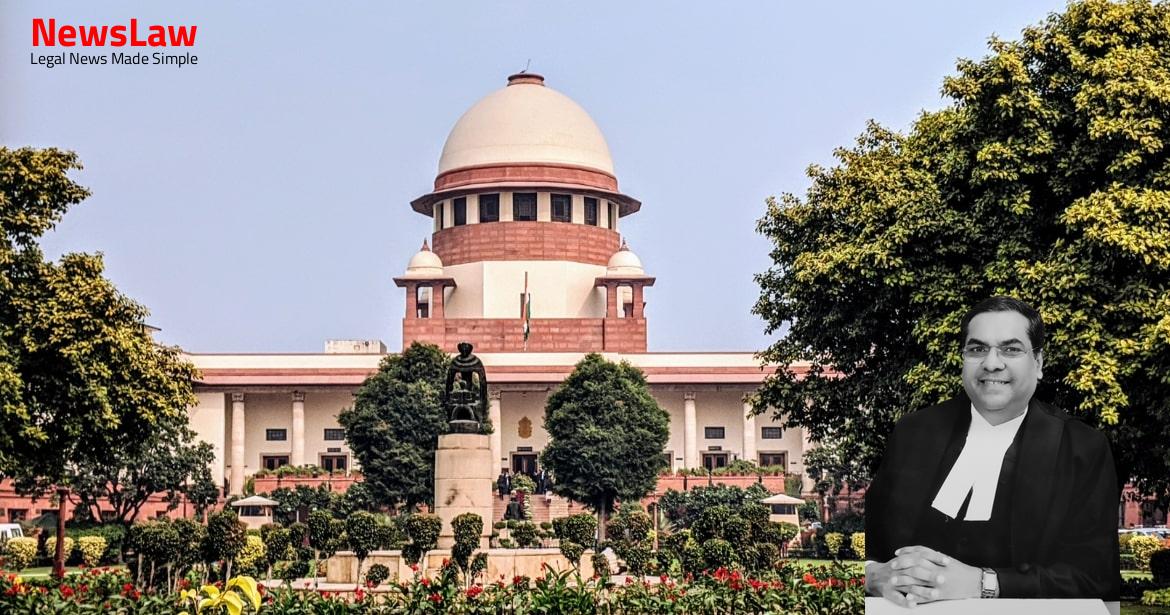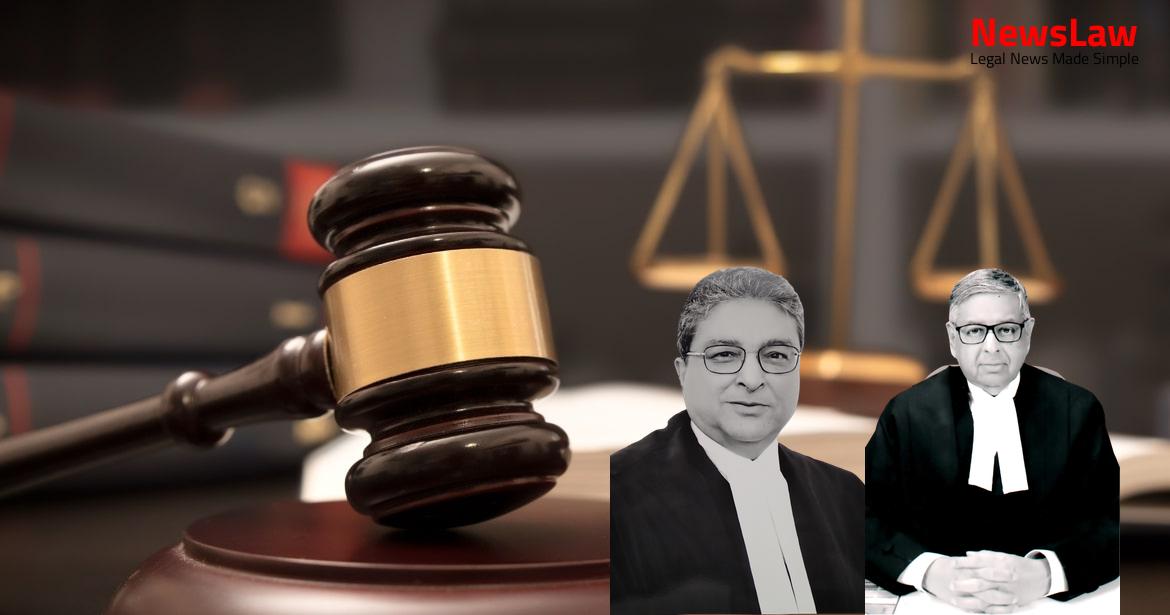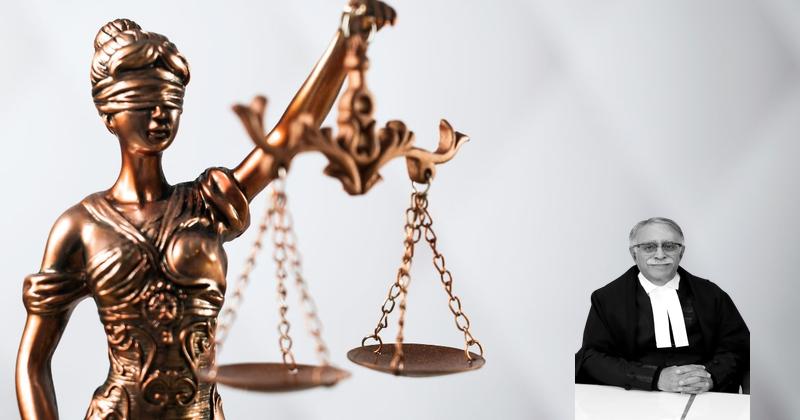In a significant legal battle, the Supreme Court of India reached a pivotal decision in the case of Manager Singh vs. State of State of Uttar Pradesh Home Department Secretary. This ruling has far-reaching implications and sets a new precedent in the realm of criminal proceedings. The case, which involved Manager Singh as the respondent and the State of India as the petitioner, delved into critical aspects of criminal law and procedural protocols. Let’s delve deeper into the details of this groundbreaking judgment.
Facts
- The FIR alleges that the accused are frauds who took earnest money on the property but are now making excuses.
- Chargesheet filed against accused Bachan Singh Rawat, Mahendra Kumar, and Manager Singh under various sections of the IPC.
- Appellants claim chargesheet is vague, filed without proper investigation, and fails to establish any offense.
- Manager Singh implicated as an accused in the case.
- Injuries to Rajesh Wangvelu were found to be caused by a hard and blunt object.
- Non-bailable warrants issued against Manager Singh.
- The chargesheet states the offenses are duly proved against the accused Bachan Singh Rawat, Mahendra Kumar, and Manager Singh.
- Manager Singh failed to appear, bailable warrants issued against him.
- Manager Singh terminated from service by the Ministry of Culture.
- Manager Singh filed a petition to quash proceedings in the case.
- Special Chief Judicial Magistrate rejected Manager Singh’s application for extension of time to surrender.
- The appellant has filed the present appeal challenging the correctness of the impugned order.
- Accused Bachan Singh Rawat and Mahendra Kumar are out on bail.
- High Court granted a further period of 10 days’ time to Manager Singh to surrender.
- Jamanatnama is attached in the file for Manager Singh.
- Arrest of accused Manager Singh was stayed till the filing of the chargesheet as per the High Court order.
- High Court dismissed Manager Singh’s petition under Section 482 of the Code to quash criminal proceedings against him on 16.03.2021.
- Allahabad High Court dismissed the Criminal Misc. Anticipatory Bail Application No.2235/2022 filed by the appellant due to non-bailable warrants and chargesheet being filed.
- Allahabad High Court granted interim anticipatory bail to the appellant till 03.01.2022 with certain conditions.
- Appellant was advised to approach the High Court again in case of a change in circumstances.
Also Read: Bhushan Steel v. Arcadia: Supreme Court Judgment on Territorial Jurisdiction and Liability
Analysis
- The analysis focuses on the details provided in the chargesheet in relation to specific cases and legal provisions.
- Refers to the statutory provisions of Sections 190 and 204 of the Code of Criminal Procedure, 1973.
- Discusses the importance of detailed chargesheets for effective judicial proceedings.
- Highlights the need for sufficient evidence and grounds for proceeding to issue summons and take cognizance of the offense.
- Emphasizes the role of the investigating officer’s opinion in forming the basis for chargesheets and subsequent legal actions.
- Discusses the legality and caution required in issuing non-bailable warrants based on the severity of the offense and the likelihood of accused evading the law.
- Addresses the significance of thorough investigation and evidence presentation for judicial cognizance and summons issuance.
- Mentions the importance of complying with police regulations and providing in-depth details of the offense in the chargesheet.
- Points out the requirement to differentiate between civil and criminal wrongs during legal proceedings.
- Reiterates the discretion of the Magistrate to seek clarification, order further investigation, or call for additional statements if there are doubts or ambiguities.
- Section 173 of the Indian Penal Code deals with the reporting of a police officer upon completion of an investigation.
- The report must include details like names of parties, nature of information, persons acquainted with the case, whether an offence appears to have been committed, and by whom, and the status of the accused.
- If there is sufficient evidence to proceed, a police report or chargesheet under Section 173(2) of the Code must be submitted to the Magistrate empowered to take cognizance of the offence.
- The charge for each distinct offence must be tried separately.
- The investigating officer must mention whether an offence appears to have been committed and by whom in the report as per Section 173(2)(i)(d) of the Code.
- Investigations relating to specific offences under sections 376, 376A, 376AB, 376B, 376C, 376D, 376DA, 376DB, or 376E of the Indian Penal Code must be completed within two months.
- If the police report concludes that no offence has been committed, the Magistrate has options to accept the report, disagree and proceed further, or direct additional investigation by the police.
- The officer in-charge must communicate the action taken to the informant in the prescribed manner by the State Government.
- Certain requirements regarding the contents and format of the police report as per Section 173 have been highlighted.
- The significant aspects of the investigation process, submission of the report, and subsequent actions by the Magistrate have been detailed.
- The role of the Magistrate in deciding to take cognizance and proceed with a case is crucial, as it can affect the effectiveness of the first information report.
- High Courts generally do not interfere with criminal proceedings unless necessary for justice.
- Magistrates must carefully consider the allegations in the charge-sheet or complaint at the stage post-accused appearance.
- The contents of the chargesheet are significant to inform the accused about the nature of allegations against them.
- Every just and fair procedure is permissible until expressly or impliedly prohibited by law.
- The investigating officer’s duty is to gather all relevant information during the investigation and not act as an inquiry or judge.
- The Police report under Section 173(2) serves as an opinion by the investigating officer that there is enough evidence for trial.
- The chargesheet does not need to extensively evaluate evidence as that is the role of the trial process.
- The chargesheet must disclose facts to meet the requirements of Section 173(2) of the Code and State rules.
- Upon receiving a police report under Section 173(2), a Magistrate can take cognizance even if no case is made out against the accused.
- If a Magistrate decides not to proceed or drop proceedings based on the police report, the informant must be notified and given an opportunity to be heard.
- The expression ‘chargesheet’ or ‘final report’ is used in Police Manuals but not in the Code.
- The chargesheet must comply with statutory requirements and present sufficient details of the alleged contravention of the law.
Also Read: Madhya Pradesh Jan Vikash Party v. Election Commission of India: Upholding the Use of EVMs
Decision
- The High Court partly allowed the appellant’s anticipatory bail application.
- Chargesheet No 582/2019 dated 18.10.2019 was filed, establishing charges under Sections 420 and 120B IPC.
- Quashing of the chargesheet and summoning order was done by the court.
- Imran and Kamaluddin are to comply with the conditions mentioned in Section 438(2) of the Code.
- Manager Singh had summoning orders quashed and non-bailable warrants quashed as well.
- Release of Manager Singh on bail was directed by the court.
- Criminal proceedings were quashed for Sharif Ahmed and Adil.
- Imran and Kamaluddin are to be released on anticipatory bail in connection with the chargesheet under Sections 420 and 120B IPC.
- Chargesheet was filed against the appellants under Sections 405 and 506 IPC.
- Complaint under Sections 420 and 120B IPC was ordered by the court.
Case Title: VAKIL AHMAD Vs. THE STATE OF UTTAR PRADESH HOME DEPARTMENT SECRETARY (2024 INSC 363)
Case Number: Crl.A. No.-002357-002357 – 2024



